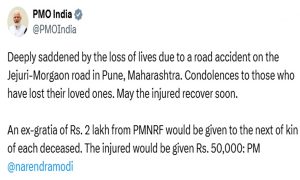The Swachh Bharat initiative of the government has led to reduced ground water contamination. A study by the UNICEF said the substantial reductions may potentially be attributed to the improvement in sanitation and hygiene practices.
It said, supportive systems such as regular monitoring and behaviour change messaging, which have all been critical aspects of the Swachh Bharat Mission (Grameen), also helped reduce ground water contamination.
While another study by Gates Foundation said that Swachh Bharat leverages 23 thousand crore rupees for behaviour change.
These studies were aimed at assessing the environmental impact and communication footprint of the Swachh Bharat Mission (Grameen).
Jal Shakti Minister Gajendra Singh Shekhawat has said Swachhata affects all aspects of the environment – be it groundwater, surface water, soil or air – as well as health and well-being of the communities in ODF regions.
He praised the Swachh Bharat Mission for bringing a reduction in ground water contamination. He said, the WHO 2018 study had estimated that the Swachh Bharat Mission will save over three lakh lives by the time India is Open Defacation Free.
In a release, Ministry of Drinking Water and Sanitation said, Rural sanitation coverage in the country had crossed the 99 per cent mark.
Swachh Bharat Mission is in the final stretch of its completion with 30 States and Union Territories already having declared themselves free from open defecation. It is focusing on sustaining the gains of this progress and to extend the momentum to the ODF-plus phase which includes solid and liquid waste management.




























 WhatsApp us
WhatsApp us